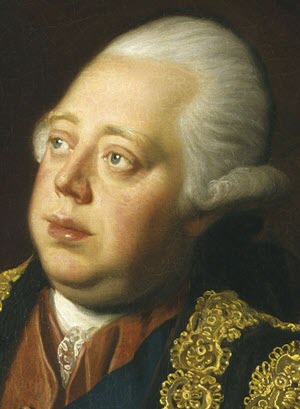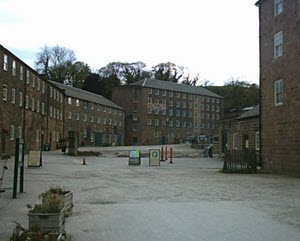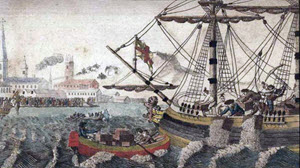| |
Date |
Event(s) |
| 1 | 1760 | - 25 Oct 1760—29 Jan 1820: King George III's reign

George III was the third British monarch of the House of Hanover, but unlike his two predecessors, he was born in Great Britain, spoke English as his first language, and never visited Hanover. His reign was marked by a series of military conflicts involving his kingdoms, much of the rest of Europe, and places farther afield. Early in his reign, Great Britain defeated France in the Seven Years' War, becoming the dominant European power in North America and India. However, many of Britain's American colonies were soon lost in the American War of Independence. Further wars against revolutionary and Napoleonic France from 1793 concluded in the defeat of Napoleon at the Battle of Waterloo in 1815.
Later in life, George III had recurrent mental illness. After a final relapse in 1810, a regency was established, and George III's eldest son, George, Prince of Wales, ruled as Prince Regent.
|
| 2 | 1770 | - 28 Jan 1770—27 Mar 1782: Lord North 12th British Prime Minister

Frederick North, 2nd Earl of Guilford, (13 April 1732 – 5 August 1792), better known by his courtesy title Lord North, which he used from 1752 to 1790, was Prime Minister of Great Britain from 1770 to 1782. He led Great Britain through most of the American War of Independence. He also held a number of other cabinet posts, including Home Secretary and Chancellor of the Exchequer.
North's reputation among historians has swung back and forth. It reached its lowest point in the late nineteenth century when he was depicted as a creature of the king and an incompetent who lost the American colonies. In the early twentieth century a revisionism emphasised his strengths in administering the Treasury, handling the House of Commons, and in defending the Church of England.
|
| 3 | 1771 | - 1771: 'Factory Age' begins

The weaving of cotton cloth was a major industry by the 1760s, with most of the labour provided by people in their homes. In 1771, inventor Richard Arkwright opened the first cotton mill at Cromford, Derbyshire. Spinning was carried out by his own patented machine. This was a big step towards the automation of labour-intensive industries and heralded the beginning of the 'Factory Age' in Britain
|
| 4 | 1773 | - 16 Dec 1773: Boston Tea Party

Boston Tea Party: In 1770, taxes on American Colony imports had been repealed on all except tea. In 1773, colonists disguised as Native Americans dumped chests of tea from East India Company ships into Boston harbour in protest against this levy. Tensions between the colonists and the British government escalated.
Back in Britain, the public scoff at the action, because it is common knowledge that for tea to be correctly brewed, the water has to be at boiling point, with milk and sugar added according to taste. However the Boston Tea Party achieved its aims and, to this day, in hotels across America, puzzled British tourists are served "Hot Tea" with water that was boiled sometime in the last couple of hours. To add to their confusion it is served with a slice of lemon instead of milk. Meanwhile their American cousins quaff a strange concoction called "Iced Tea." For this, and this alone, independence was essential to ensure peace and harmony.
|


